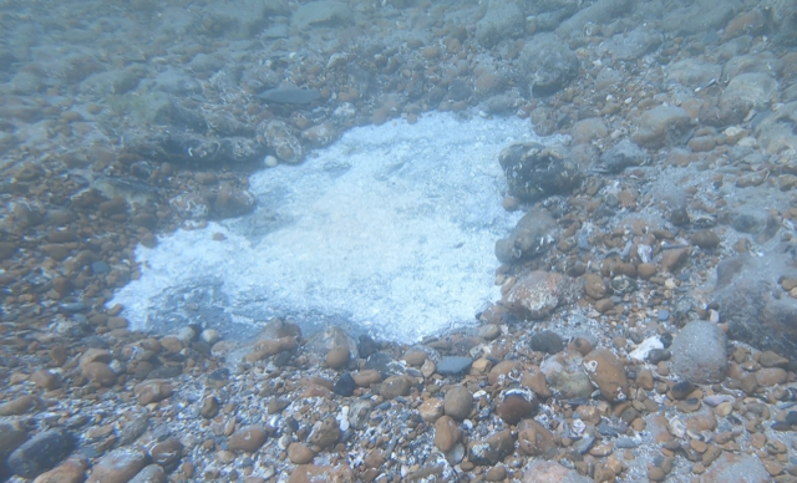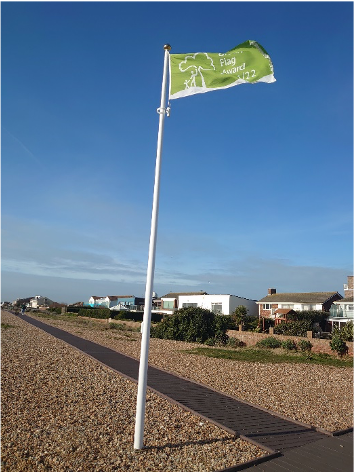A Spring 2022 update from FoSB
Just before Christmas FoSB members were treated to a bird watching master class, enjoying a range of birds using the Adur estuary. Oystercatchers, Redshanks and a Curlew were seen, as well Teal that visit Shoreham in the winter months. There’s so much to see, you just have to stop for a few minutes and let nature reward you! Thank you to FoSB’s own Tony Benton for leading the event!
Despite gale force winds many hardy people joined us for our Christmas Beach Clean on 28th December. Loads of rubbish was picked up, much of it blown into the grass and vegetation at the top of the beach. The most interesting finds were a large tyre and an outboard motor- the Coastguard has been informed of the latter. Thanks to Mike Riddiford for sorting out the equipment and going home to get more to meet the demand!
In January Our Rangers installed the pole for our Green Flag at Ferry Road entrance. It’s a lovely sight on a sunny day. I’m sure many of you will have seen the flag fluttering away. Read more about the Green Flag award and what it brings to our beach at www.greenflagaward.org.
Clearing work continues
Shoreham Beach’s LNR vegetated shingle habitat is home to rare and fragile species such as Yellow Horned Poppy, Sea beet, Orache and Sea Kale. To ensure these species and the unique invertebrates that use them can thrive, it is valuable to keep in check the more dominant invasive species on the beach.
Some brilliant early February sunshine and clear skies provided perfect conditions for nine volunteers from the Environment Agency’s Shoreham and Seaford Depots led by Glyn Wells to utilise one of their voluntary environment days clearing Silver Ragwort South of the board walk.
They uncovered emerging plants of Yellow Horned Poppy, Sea Beet, Sea kale, and some members of the Daisy Family (Asteraceae) which will have large yellow flowers which are very attractive to pollinators. Thanks to Fred Walden for his help and Laura Brook for arranging the day and our Ranger Craig Ifield who had the hard job of transporting the unwanted plants to the council green recycling depot.
Out at sea
Black Bream- Spondyliosoma cantharus are a warmer water fish found around the south and west coasts of the UK and increasingly off our Sussex Coasts. They breed during April and May- the males excavate a shallow area in the seabed and move pebbles and gravel until they reach a hard surface- usually chalk or clay in Sussex- the females lay their eggs in this “crater” The male protects the eggs until they hatch.
Black Bream are always born female! They change to males when they reach 30cm, all fish over 40cm are male. It’s important to avoid catching Black Bream during the breeding season, and to release any larger fish that are caught, which will be males.

The picture shows a Black Bream nest- These little fish can clear away quite large pebbles until they have an almost circular section of chalk bedrock on which to lay their eggs.
Looking ahead
We have a flower walk being arranged by Jacky for 29th May and looking ahead to the school summer holidays we are bringing back the ever-popular rock pooling event and a strandline walk.
Finally, we are looking for a new chair. If you love the beach and are passionate about helping keep it in fantastic condition and have some time to spare to work with our fantastic committee and dedicated volunteers we’d love to hear from you. For more details, please see our Facebook, website (https://www.fosbeach.com/) or email on opportunity@fosbeach.com.
Jim Marshall, Chair, Friends of Shoreham Beach

